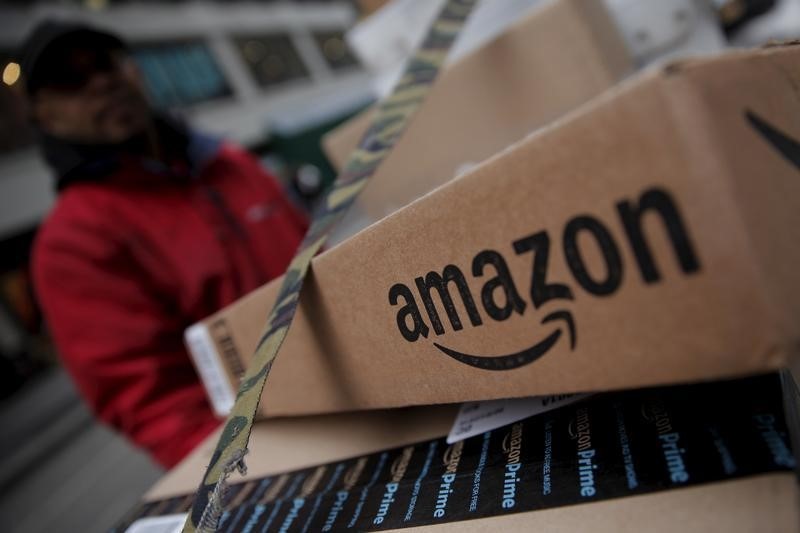Investing
Bipartisan lawmakers question Milwaukee Tool on alleged forced labor in supply chain

© Reuters. FILE PHOTO: Senator Jeff Merkley (D-OR) speaks during a Senate Foreign Relations Committee hearing on the Fiscal Year 2023 Budget at the U.S. Capitol in Washington, U.S., April 26, 2022. Bonnie Cash/Pool via REUTERS/File Photo
By Katherine Masters
NEW YORK (Reuters) – A bipartisan group of U.S. lawmakers asked the Milwaukee Tool unit of Hong Kong-based Techtronic Industries (OTC:) to examine whether its products had links to forced labor, citing a recent media report that some were made by Chinese prisoners.
In a letter sent Tuesday and signed by Republican Representative Chris Smith and Democratic Senator Jeff Merkley, the lawmakers questioned Milwaukee Tool’s oversight of its supply chain and whether it had independently investigated the claims, according to a copy of the letter seen by Reuters.
Milwaukee Tool, which sells power equipment and home improvement gear, including work gloves, through retailers, is one of a handful of companies facing new scrutiny in Washington for manufacturing and sourcing consumer products in China.
According to reporting by the nonprofit news site Wisconsin Watch, Lee Ming-che, a political activist and former inmate now living in Taiwan, said he was forced to work 13 hours a day alongside other prisoners sewing polyester work gloves for Milwaukee Tool. Reuters couldn’t immediately reach Lee Ming-che for comment.
One of the company’s suppliers, Shanghai Select Safety Products, allegedly subcontracted work to a jail in China’s Hunan province. Milwaukee Tool did not immediately respond to a request for comment but told Wisconsin Watch in May that the company “found no evidence to support the claims being made.”
Lawmakers have questioned multiple retailers over their sourcing amid heightened trade tensions with China. For instance, a separate bipartisan committee in May sent letters to Nike (NYSE:), Adidas (OTC:), Shein and Temu questioning the companies’ supply chains and whether they source from the Xinjiang region of China, where Uyghurs and other ethnic minorities are reportedly forced to labor in internment camps.
Some U.S. officials also have accused China of transferring prisoners from Xinjiang to factories in other parts of the country. Beijing has repeatedly denied the allegations, and the Chinese embassy did not immediately respond to a request for comment.
The focus on Milwaukee Tool, whose work gloves and other products are sold by Amazon (NASDAQ:) and Home Depot (NYSE:), reflects broader challenges across the retail industry, where companies are struggling to gain full transparency into the business practices of suppliers located thousands of miles away. Many retailers can only trace their manufacturing back to their most immediate suppliers, and it’s not uncommon for partners in Asia to subcontract work out to prisons or factories.
U.S. companies are under growing pressure to eliminate those suppliers due to a law than bans products made with forced labor from Xinjiang or work transfer programs in other parts of China.
Smith and Merkley, chairs of the Congressional-Executive Commission on China, asked Milwaukee Tool if it had audited every level of its supply chain, writing that“the issue of forced labor in China, and the unfair trade advantage it offers companies like yours, is one that has plagued the U.S. economy for decades.” Amazon did not immediately respond to a request for comment. A spokesperson for Home Depot told Reuters that the retailer prohibits the use of forced or prison labor and investigated Milwaukee Tool after the allegations were published.
“We have not found any evidence that the Milwaukee gloves sold at The Home Depot are made with forced labor,” the spokesperson stated.
Read the full article here

-

 Investing3 days ago
Investing3 days agoThis All-Access Pass to Learning Is Now $20 for Black Friday
-

 Investing6 days ago
Investing6 days agoAre You Missing These Hidden Warning Signs When Hiring?
-

 Passive Income3 days ago
Passive Income3 days agoHow to Create a Routine That Balances Rest and Business Success
-

 Make Money6 days ago
Make Money6 days ago7 Common Things You Should Never Buy New
-

 Side Hustles4 days ago
Side Hustles4 days agoApple Prepares a New AI-Powered Siri to Compete With ChatGPT
-

 Side Hustles5 days ago
Side Hustles5 days agoMIT Gives Free Tuition For Families Earning $200,000 or Less
-

 Passive Income4 days ago
Passive Income4 days agoCustomers Want More Than Just a Product — Here’s How to Keep Up
-

 Investing6 days ago
Investing6 days agoGoogle faces call from DuckDuckGo for new EU probes into tech rule compliance By Reuters


















